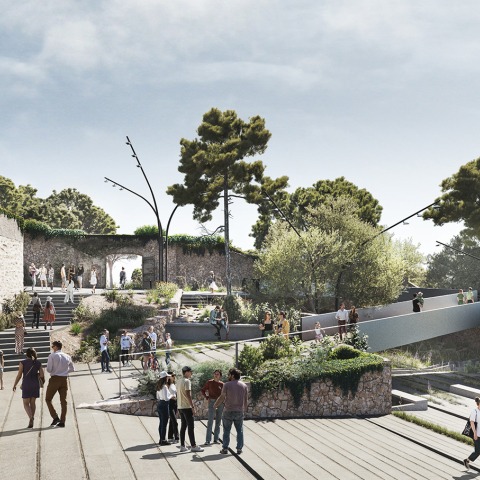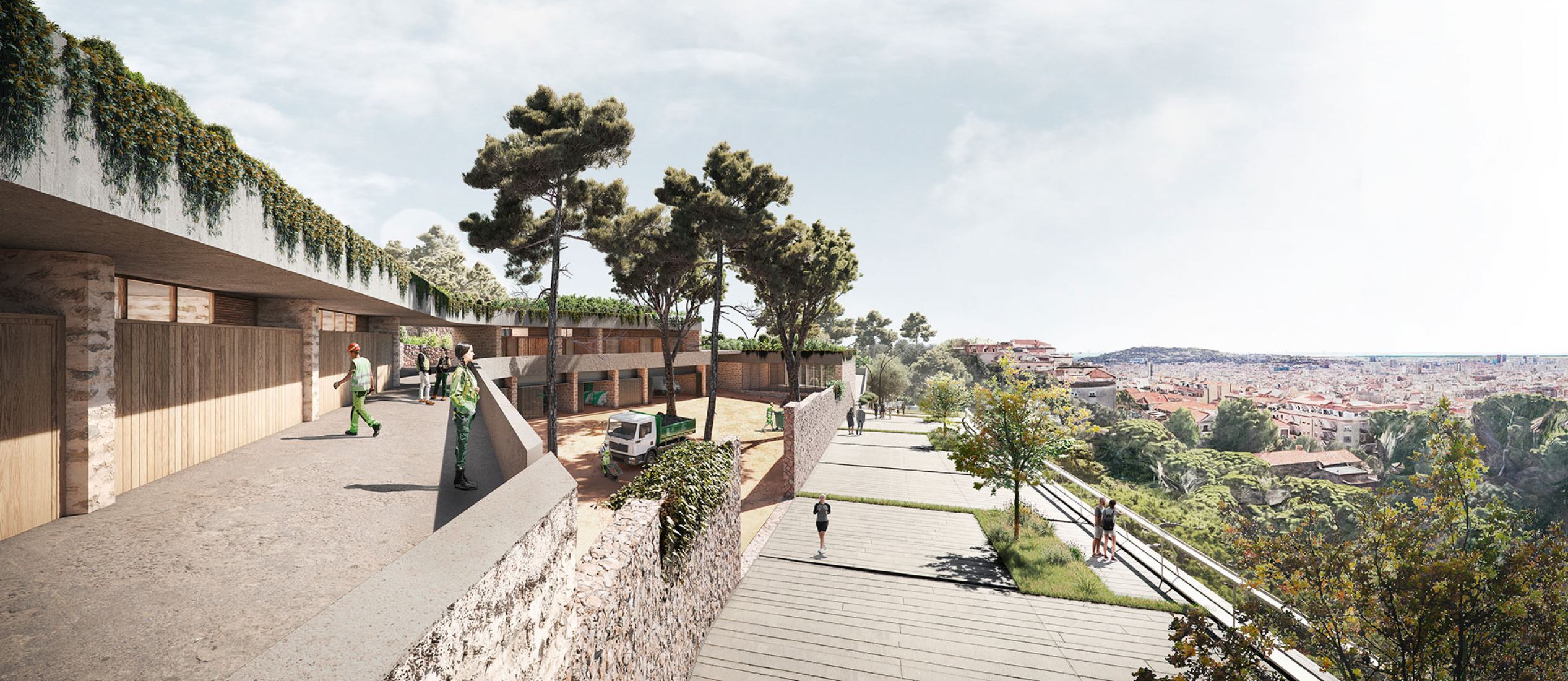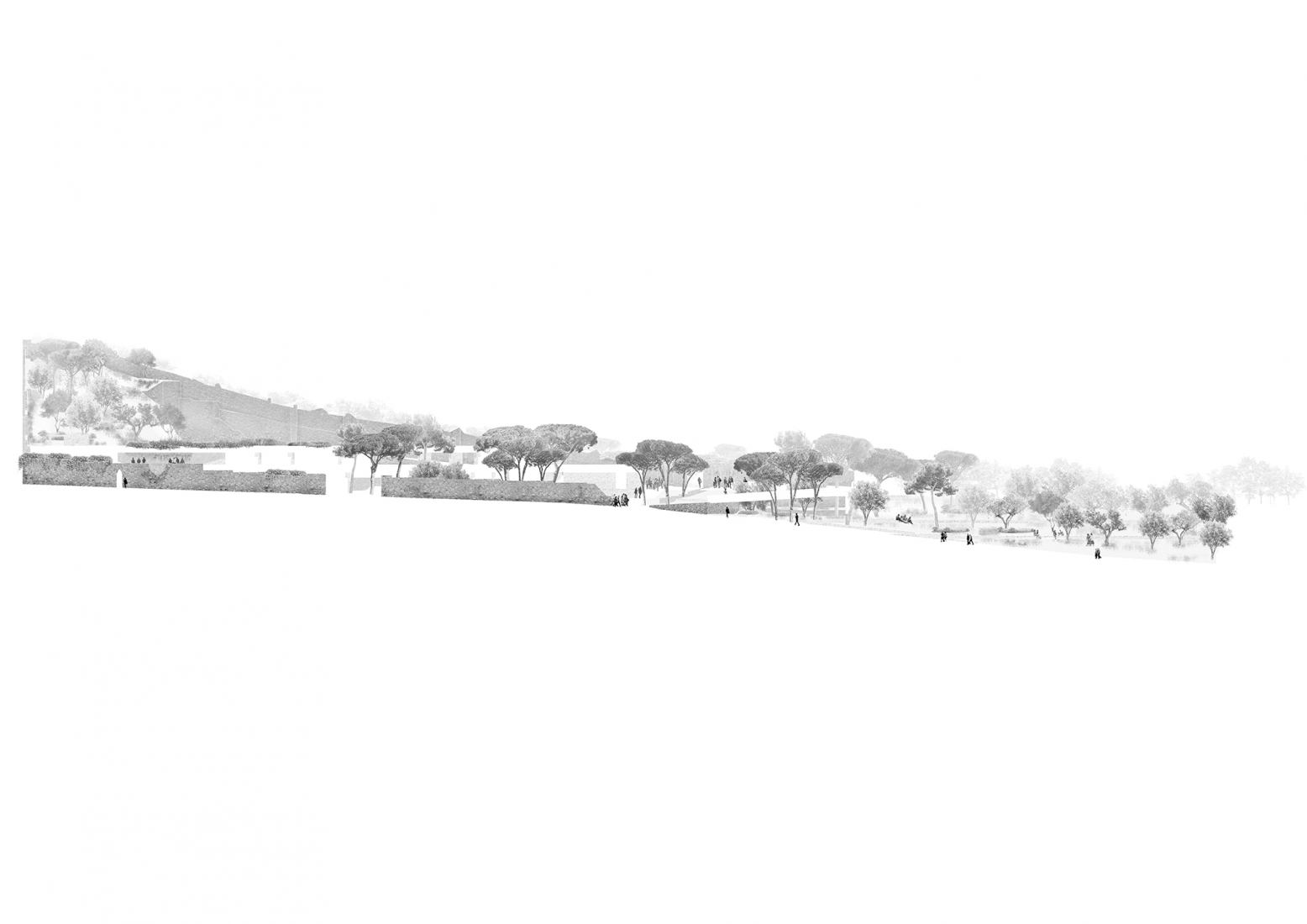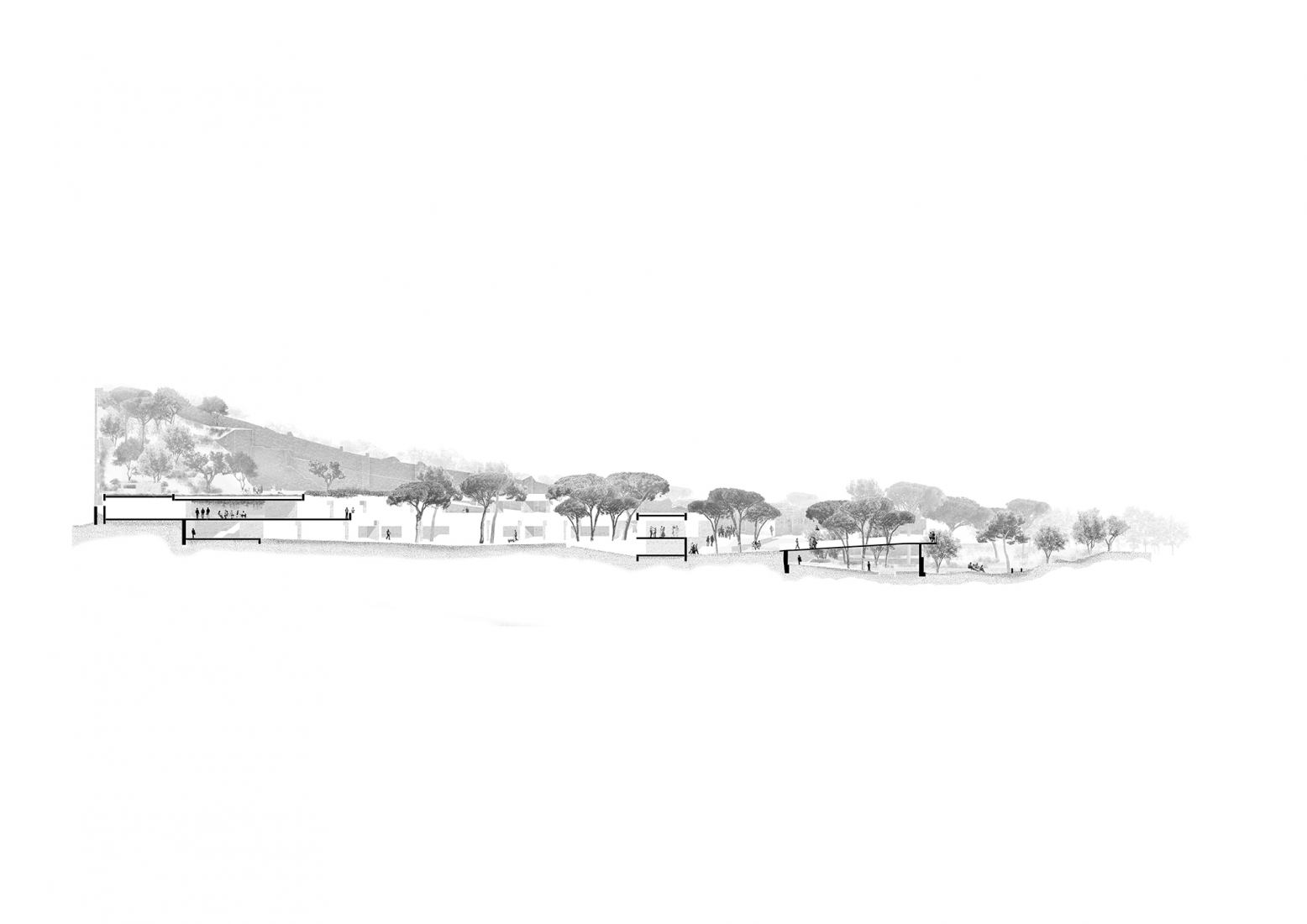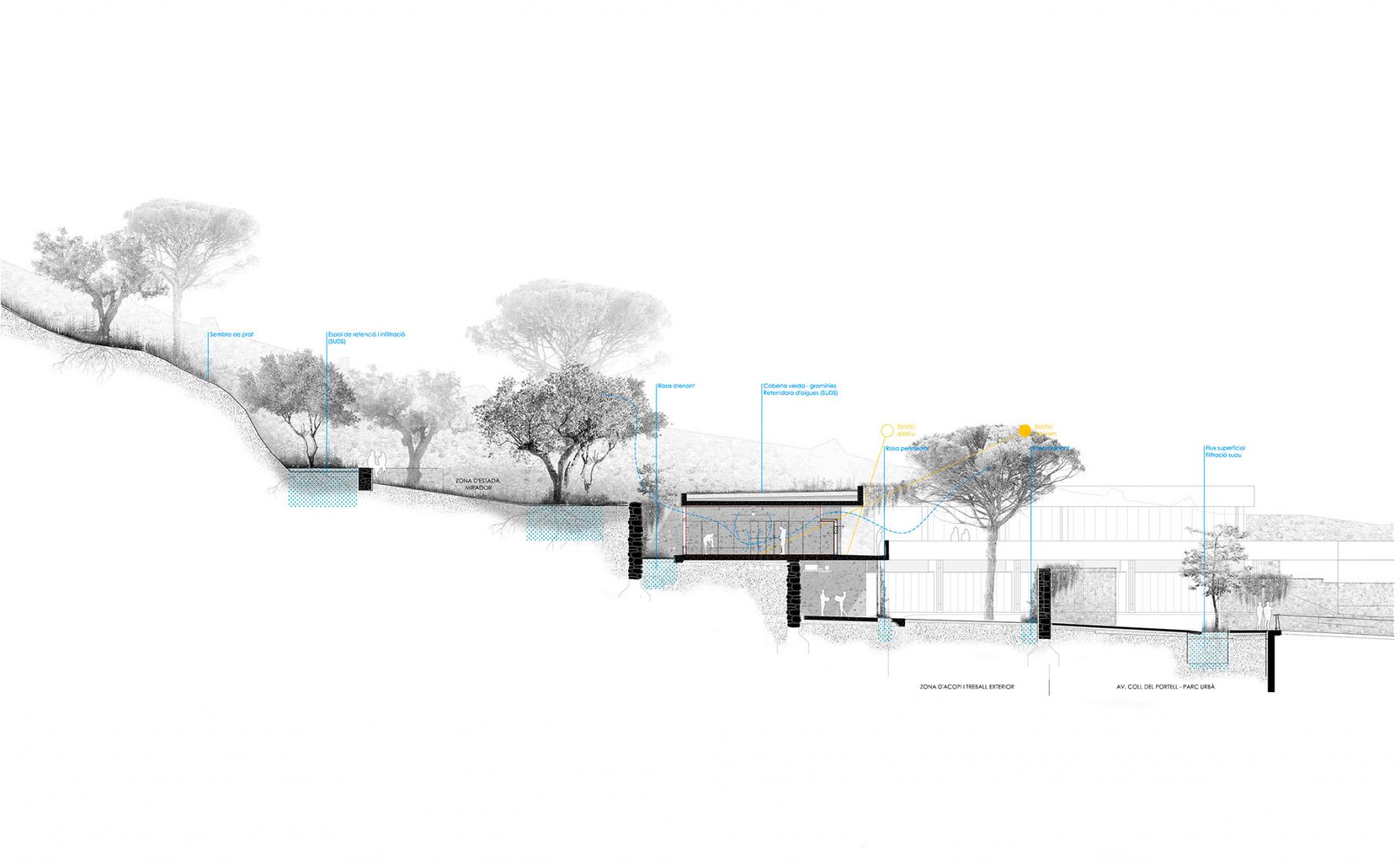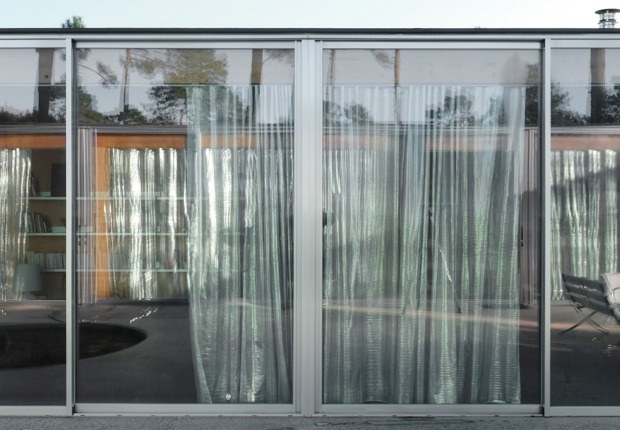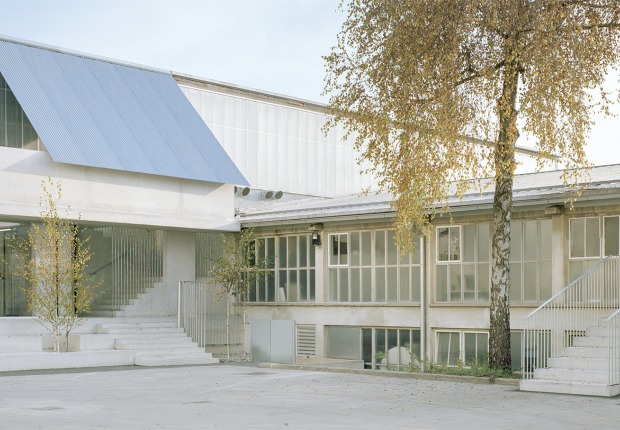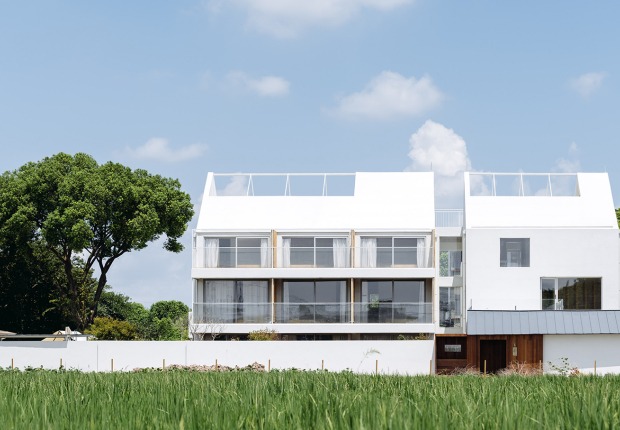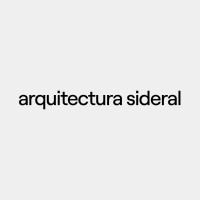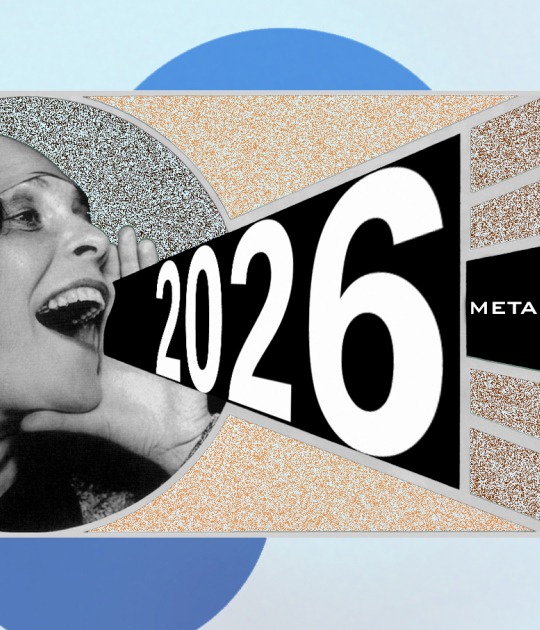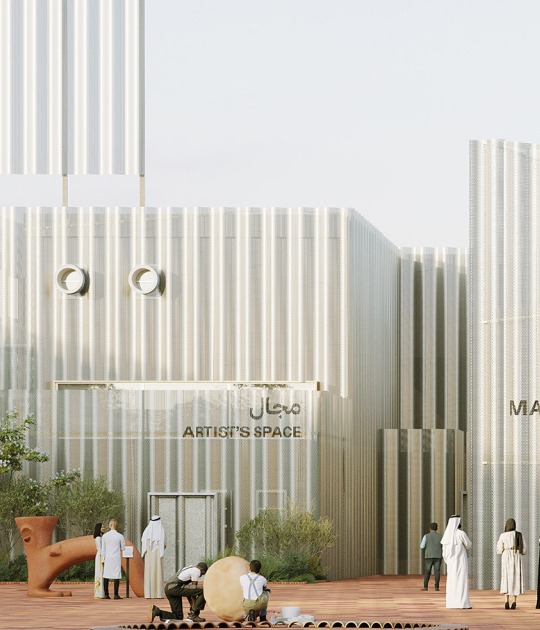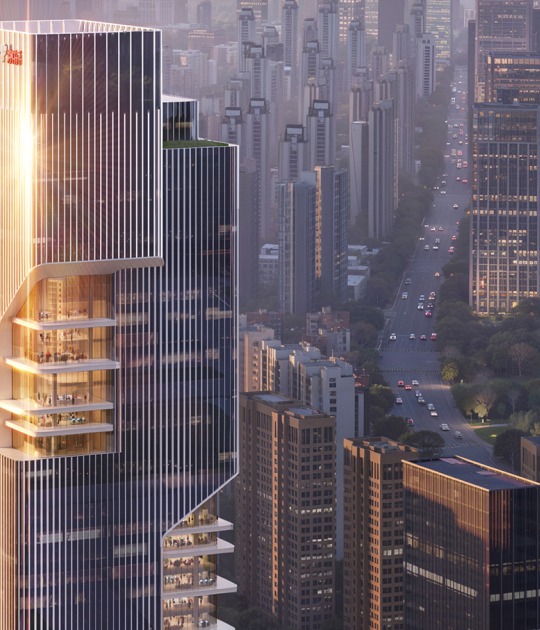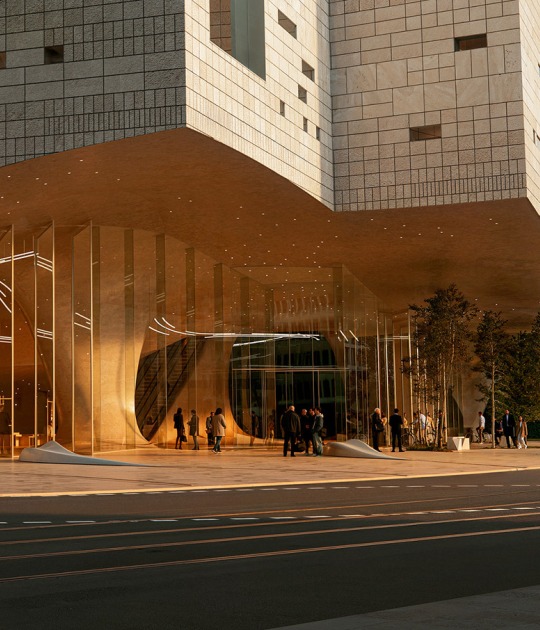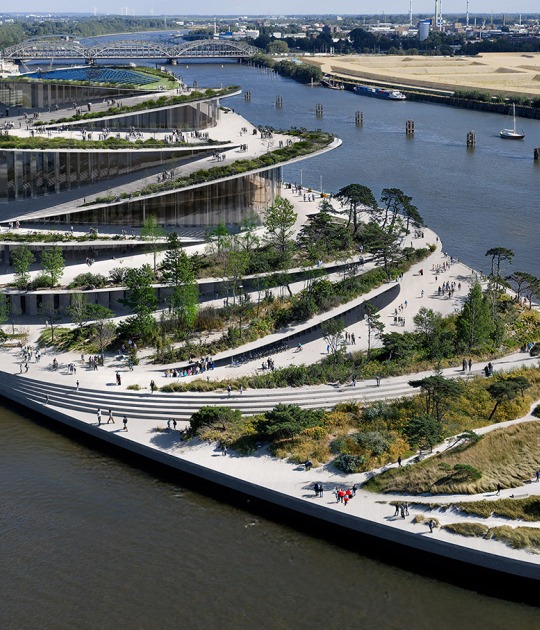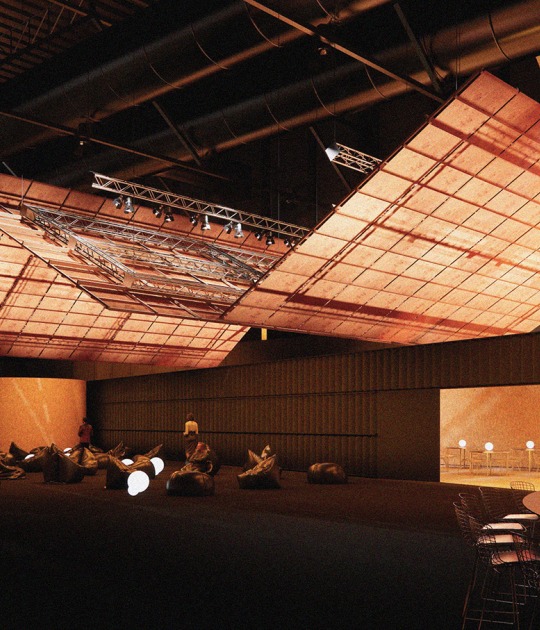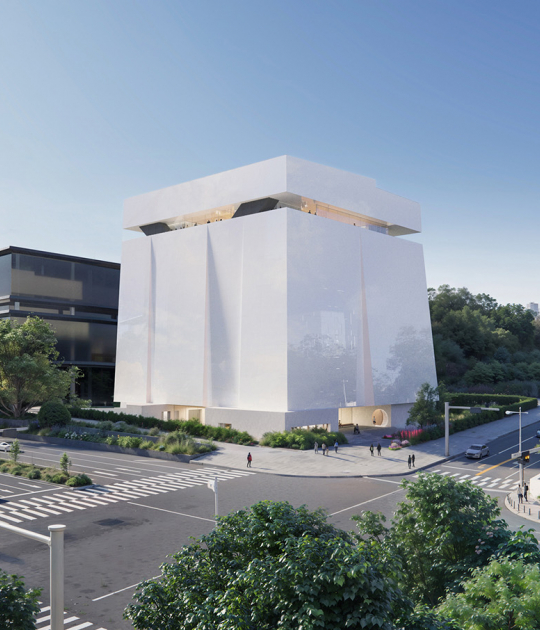The architects of Arquitectura sideral and Conxita balcells approach the project trying to respond in three ways; contextual, programmatic and formal. The first of them, three elements are studied; the materiality, incorporating remains of the walls of old buildings and new remains that work as buttresses and have been created from the demolished parts; water, incorporating accumulation systems, infiltration, cut drainage and permeable pavements, among other solutions, to control the erosion caused by water runoff; and finally, the recovery of the original vegetation, both the agricultural matrix and the olive tree terraces, currently blurred by the presence of pine trees.
On a pragmatic level, architects try to solve current and future needs such as integration with the neighborhood, introducing various circulation routes for each type of user. Finally, form is the result of the materialization of the limitations of the place and is inherent to the context; The elevations are linked, the terraces are continued and the existing structures are maintained.
From the study of these three areas, the essence of Gaudí for Park Güell can be recognized in the proposal.
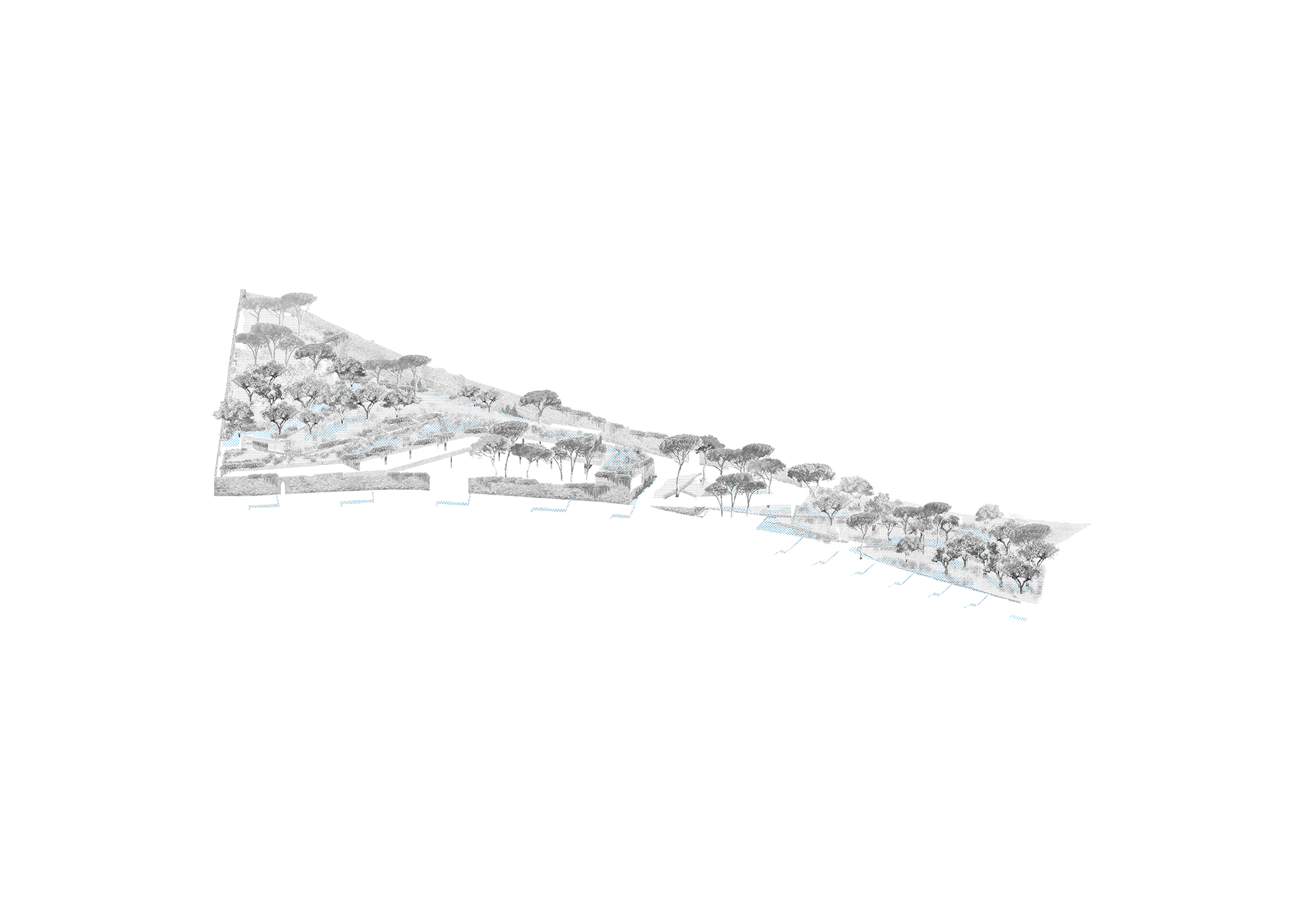
Axonometry. Nous Vestigis by Arquitectura sideral, Conxita balcells.
Project description by Arquitectura sideral, Conxita balcells
The performance takes place in the surroundings of Park Güell, in the northwest part. It is characterized by rugged topography. The northwest part is limited by the heritage wall that borders the Park and the remains of an old building with a facade on Coll del Portell Avenue. In the southwest area, it is bounded by a fence from Park Güell and open to Av. Coll del Portell to Arnold Schömberg Street. This street in the area has a steep slope. The topography shows deficiencies in stabilizing the slopes, mainly caused by rainwater runoff, and is accompanied by a large number of trees, predominantly pines, olive trees, and some carob trees.
The project is located next to a cultural nature, Park Güell. The project is conceived as a response in a triple sense: contextual, programmatic, and formal. It always recognizes the spaces of sovereignty and those of the boundary between different parts.
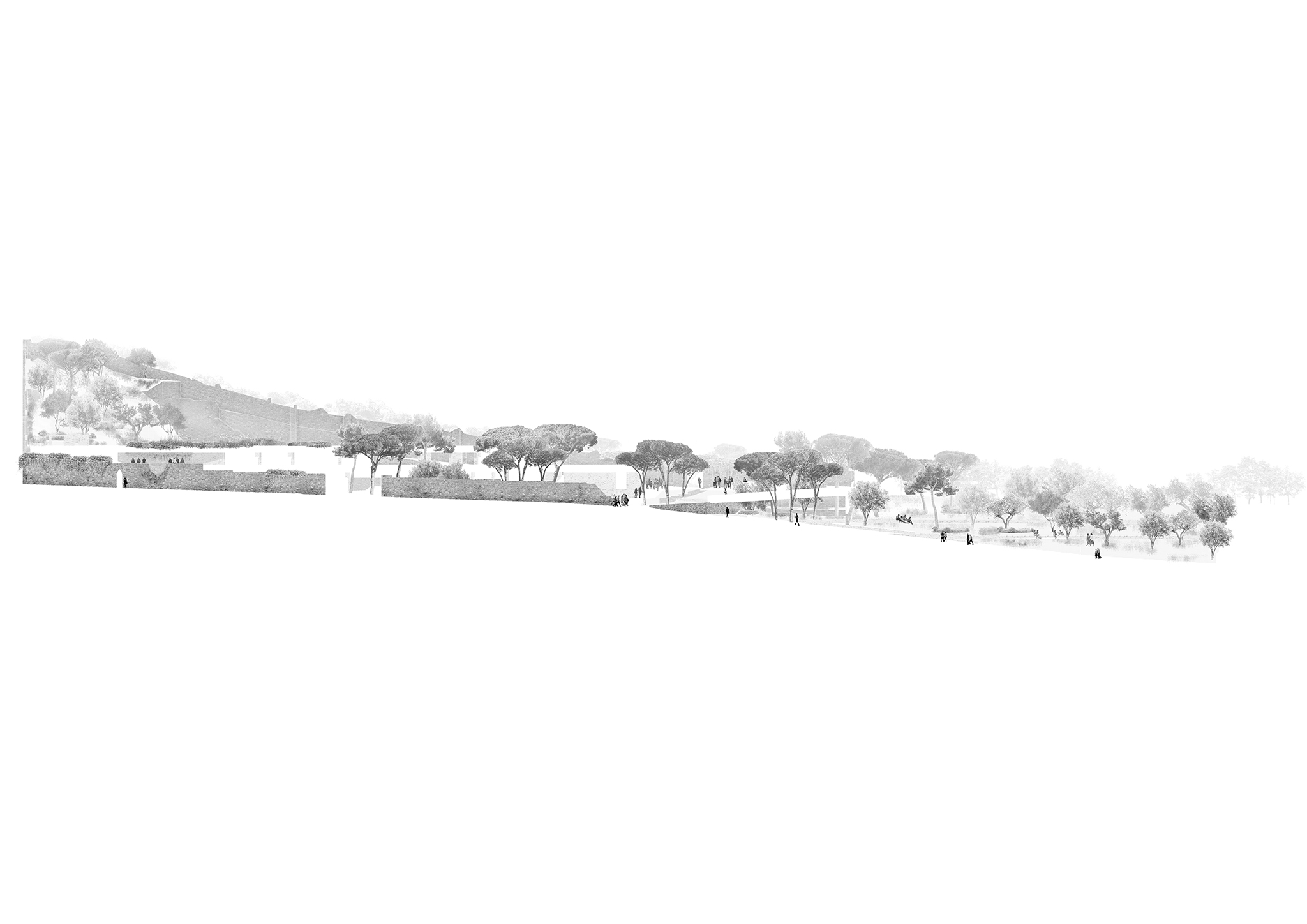
Axonometry. Nous Vestigis by Arquitectura sideral, Conxita balcells.
Contextual.
Site Materiality: Remains of ancient constructions are incorporated as a project element. The walls that create platforms are utilized, and new remains are arranged as buttresses against the existing walls, formed from the use of material generated by selective demolition. The cyclopean buttresses engage in a dialogue with the stone walls present on the site, with vegetation, and together they integrate with the environment. The program's arrangement seeks to preserve and make visible these remains, dry stone terraces that materialize the original character of the Mediterranean landscape.
Water: The site's topography necessitates erosion control and water runoff management, following Gaudí's legacy in Park Güell. The project incorporates systems such as accumulation and infiltration zones, cut-off drains, permeable pavements, etc.
Vegetation: Proposal for the restoration of the original vegetation over time. The Carmel Hill has very poor agricultural fertility. Currently, the presence of pines has blurred the original logic of dry fruit fields, hiding some olive and carob trees. The proposal aims to recover the original agricultural matrix and the landscape character of the site: olive terraces.
Overall, the combination of the proposed materiality (reuse of remains of dry-stone walls and construction of cyclopean walls with local stones), water management, and the restoration of the original landscape successfully addresses the issues at the site. Both formally and conceptually.
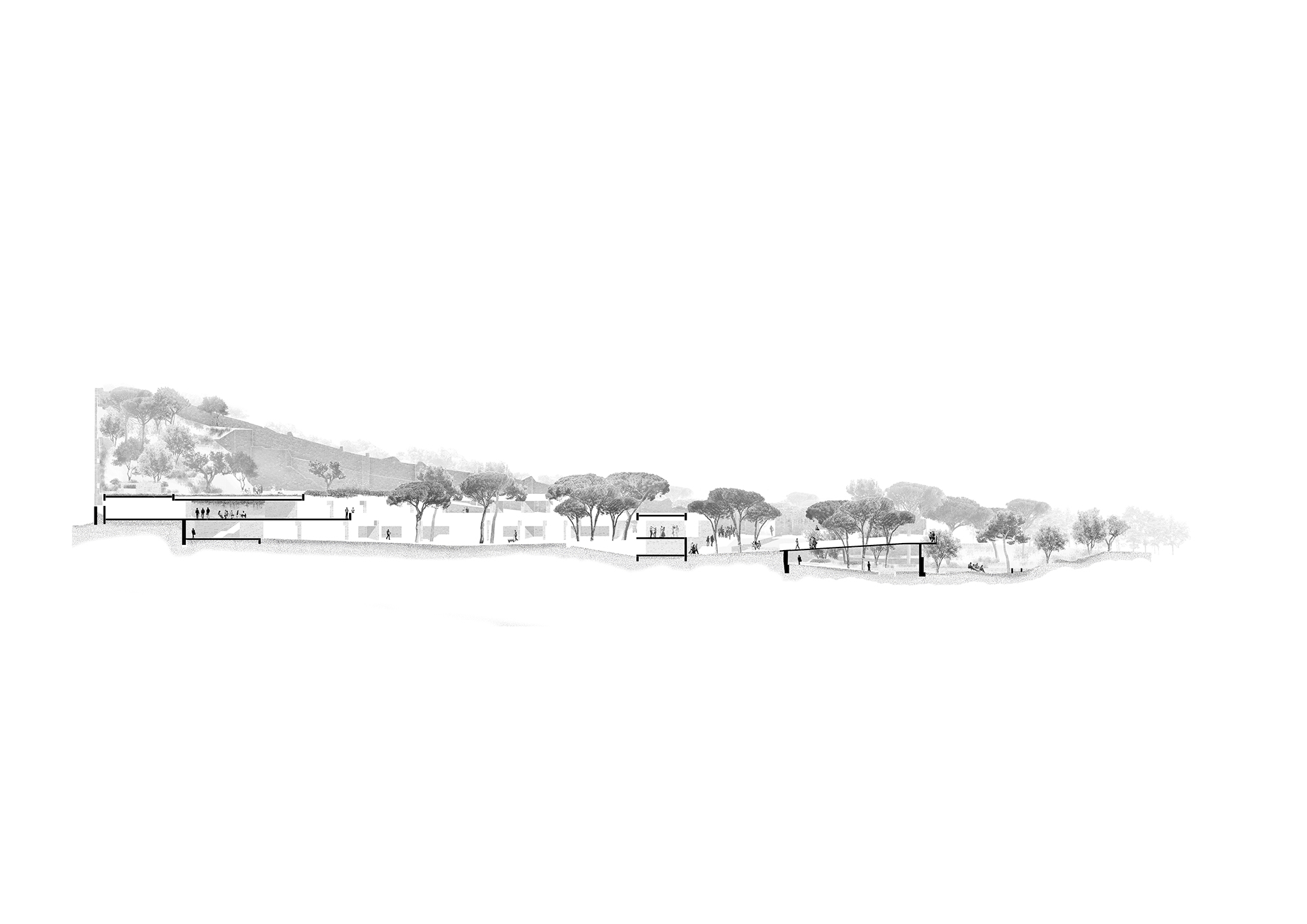
Section. Nous Vestigis by Arquitectura sideral, Conxita balcells.
Programmatic.
The project responds to the current and future needs of the park, as well as the neighborhood's social integration needs, proposing circulation paths designed for each type of user with minimal interference between pedestrian and vehicular traffic. The implementation of the entire program does not disrupt the normal functioning of the current parks and gardens logistics center. It can remain operational throughout the construction process, and once the building is completed, workers can relocate, and activities can continue.
Formal.
The resulting form is inherent to the site. Elevations are linked, existing terraces are continued, and site structures are utilized. The articulation of the form incorporates all existing conditions as tools and project generators. A form that is nothing more than the materialization of the site's constraints.
The proposal acknowledges the essence of Gaudí's project for Park Güell: establishing a process that transforms the erosion dynamics by controlling runoff, forming soil, protecting and enhancing vegetation as a primary strategy against erosion and soil fertilization. A unique and multiple strategy will accompany us throughout the project's evolution. We understand the three areas (work center and surroundings, Park Güell access and green space, and the arrangement of Coll del Portell Avenue) as a single project with the same integration strategy, where the boundaries of each area are blurred and understood as a unitary project: the tectonics of the site, water, and vegetation.
